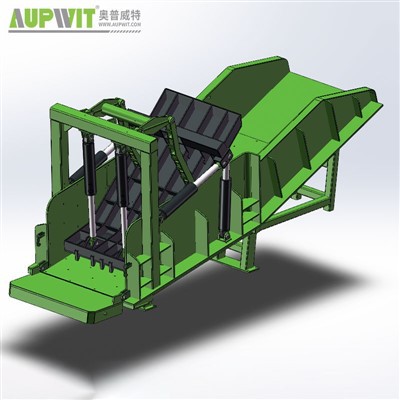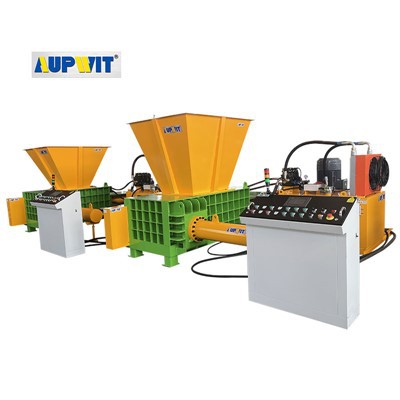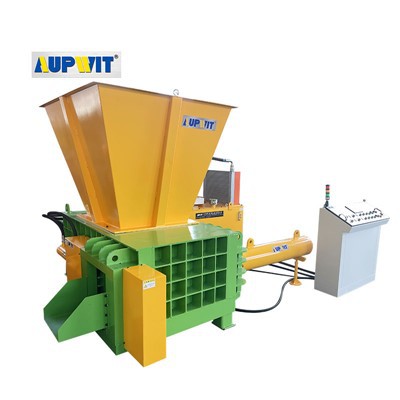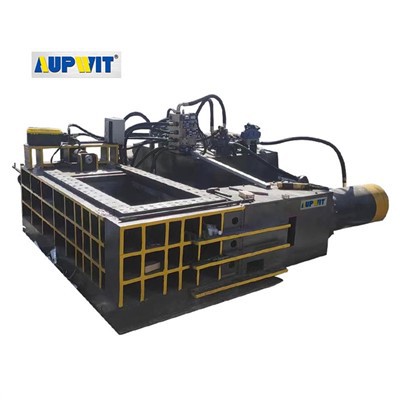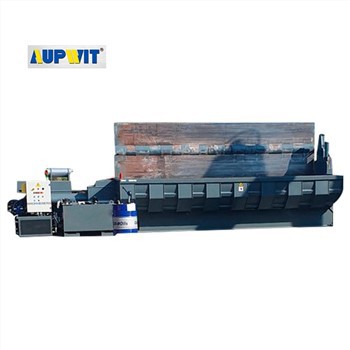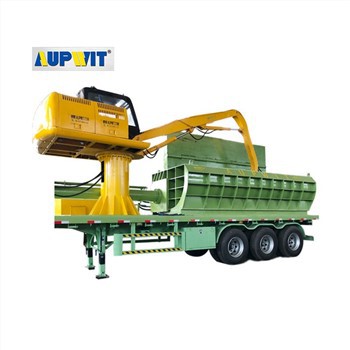Introduction
In today’s industrial landscape, efficient waste handling and recycling are critical for both environmental sustainability and operational cost control. The fully automatic horizontal baler with PLC control is a state-of-the-art solution designed to streamline the compaction of recyclable materials like cardboard, paper, plastics, textiles, and light metals. These machines are widely used in recycling centers, logistics hubs, printing factories, and manufacturing plants due to their speed, automation, and precision.
What Is a Fully Automatic Horizontal Baler with PLC Control?
A fully automatic horizontal baler is a machine that continuously compacts waste material into dense, stackable bales. Unlike vertical balers, which are labor-intensive, horizontal balers automatically feed, compress, tie, and eject the bales. When equipped with a Programmable Logic Controller (PLC) system, the baler becomes intelligent — capable of automatic operation, error detection, process optimization, and remote diagnostics.
Key Features of a Fully Automatic Horizontal Baler with PLC Control
1. Automatic Feeding and Ejection
-
The machine integrates with conveyor systems or pneumatic feeding to automatically receive material.
-
After compression, the bale is pushed out via a hydraulic ram without manual intervention.
2. PLC Control System
-
A PLC allows users to set parameters such as bale length, compression pressure, cycle time, and material type.
-
The touch-screen interface is user-friendly and allows real-time monitoring and diagnostics.
-
Intelligent sensors detect overloading, jamming, or low oil levels and issue alarms or auto-adjust operations.
3. Continuous Operation
-
Designed for 24/7 operation in high-volume facilities.
-
Auto-tie or semi-automatic wire tying systems are integrated to reduce labor input.
4. Hydraulic Power System
-
High-efficiency hydraulic cylinders generate strong compression force, typically ranging from 30 to over 200 tons.
-
Energy-saving valves and motors reduce operational costs and wear.
5. Safety Features
-
Emergency stop switches, interlocking doors, safety light curtains, and automatic shut-off systems meet CE and ISO standards.
6. Robust Construction
-
The body is made from heavy-duty steel for high strength and long service life.
-
Wear-resistant plates and anti-corrosion coatings ensure durability in harsh environments.
Applications
The fully automatic horizontal baler with PLC control is used across various industries:
-
Recycling plants: Compressing paper, cardboard, plastics, and metal cans.
-
Logistics and e-commerce: Managing packaging waste such as cartons and shrink wrap.
-
Supermarkets and distribution centers: Handling daily volumes of waste with minimal staff.
-
Textile and garment factories: Compressing fabric scraps and offcuts.
-
Printing houses: Compacting trimmings, rejected print sheets, and shredded paper.
Advantages of PLC-Controlled Automatic Horizontal Balers
| Advantage | Details |
|---|---|
| High Efficiency | Automated feeding, pressing, and ejection reduce cycle time and labor needs |
| Consistent Bale Quality | PLC-controlled pressure and timing ensure uniform size and density |
| Remote Troubleshooting | PLC can be connected to a network for remote monitoring and service |
| Data Logging | Logs operational data, ideal for analysis and optimizing recycling efforts |
| Safety and Compliance | Meets CE, UL, and other international safety standards |
| Cost-Effective | Reduces manual labor and lowers total cost of ownership over time |
Typical Specifications (Example Model)
| Specification | Value |
|---|---|
| Press Force | 80 – 200 tons |
| Bale Size | 1100 × 1100 × Adjustable mm |
| Bale Weight | 400 – 1500 kg (material dependent) |
| Output Capacity | 4 – 20 tons/hour |
| Control System | Siemens / Mitsubishi PLC |
| Tying System | 4/5 Wire Auto Tie |
| Feeding Method | Conveyor / Cyclone / Hopper |
| Power Supply | 380V / 50Hz / 3-Phase (customizable) |
| Machine Weight | 12 – 25 tons |
Price Range
The cost of a fully automatic horizontal baler with PLC control depends on capacity, features, and brand:
| Capacity Level | Estimated Price (USD) |
|---|---|
| Entry-Level (3–5 tons/hr) | $30,000 – $60,000 |
| Mid-Range (6–10 tons/hr) | $60,000 – $100,000 |
| High-Capacity (10+ tons/hr) | $100,000 – $180,000+ |


